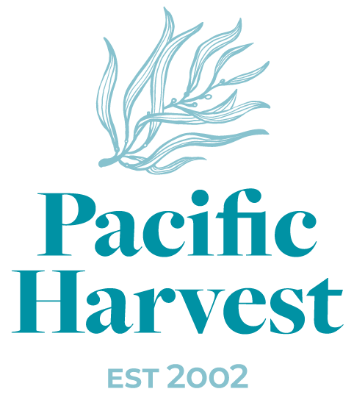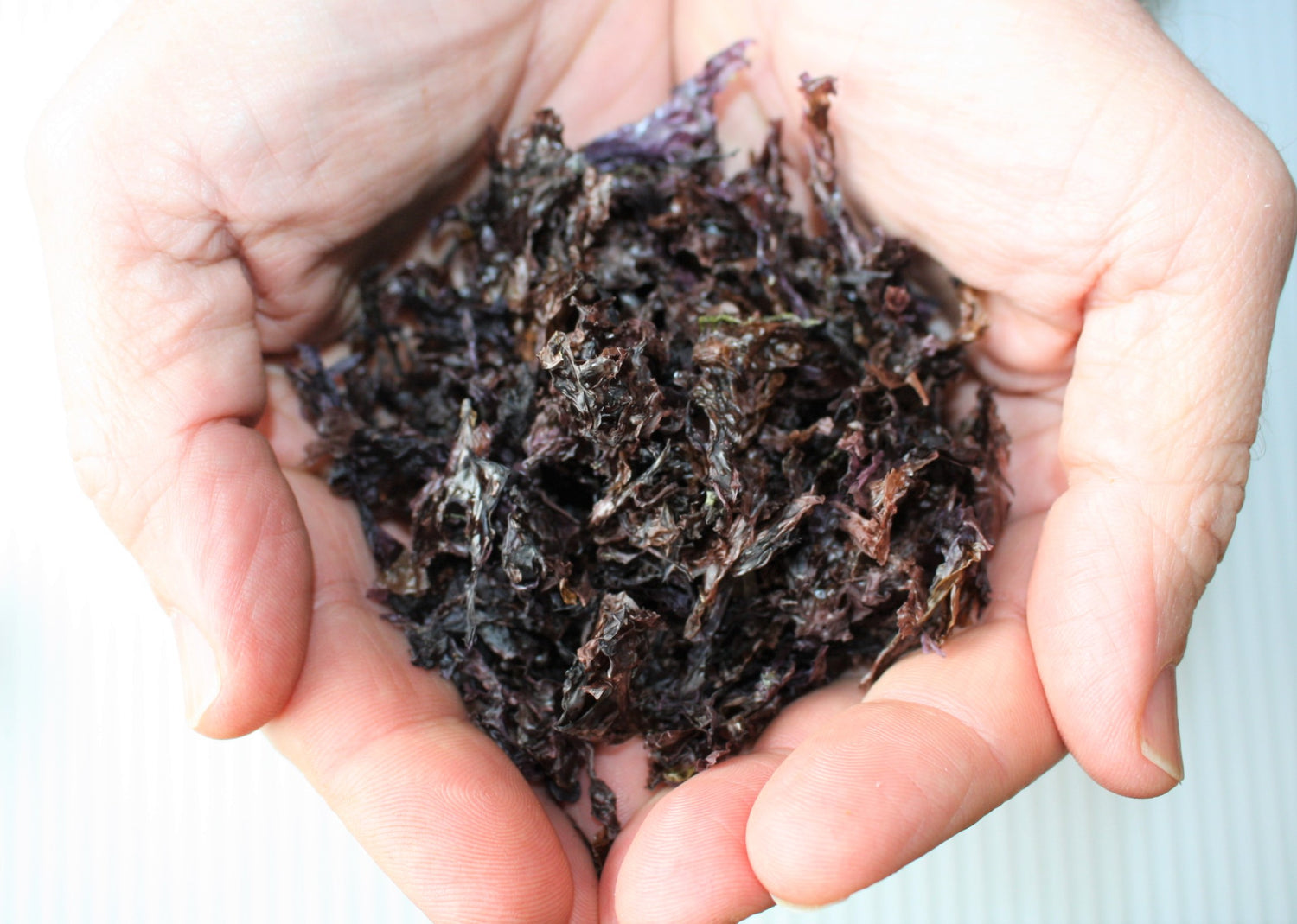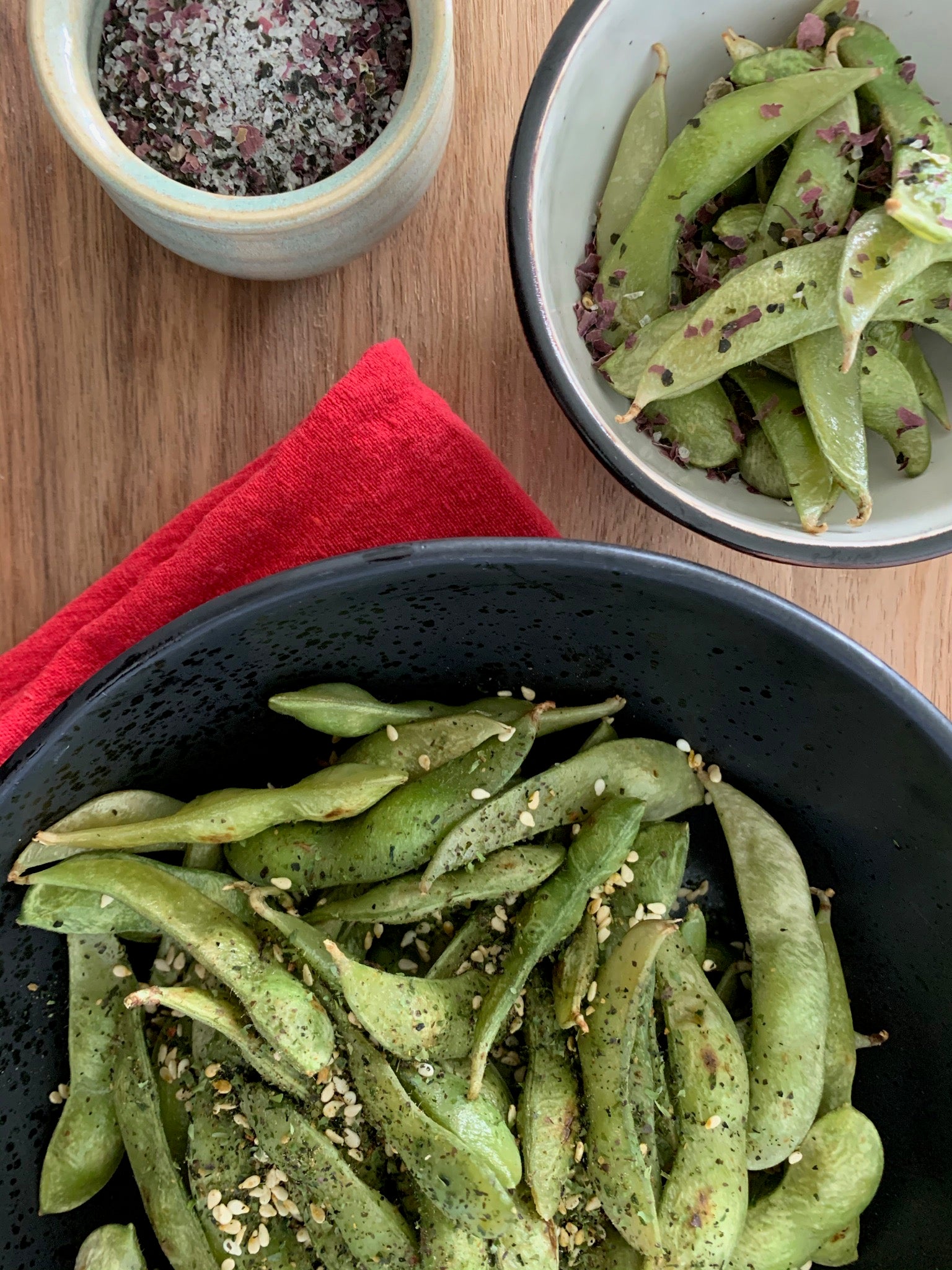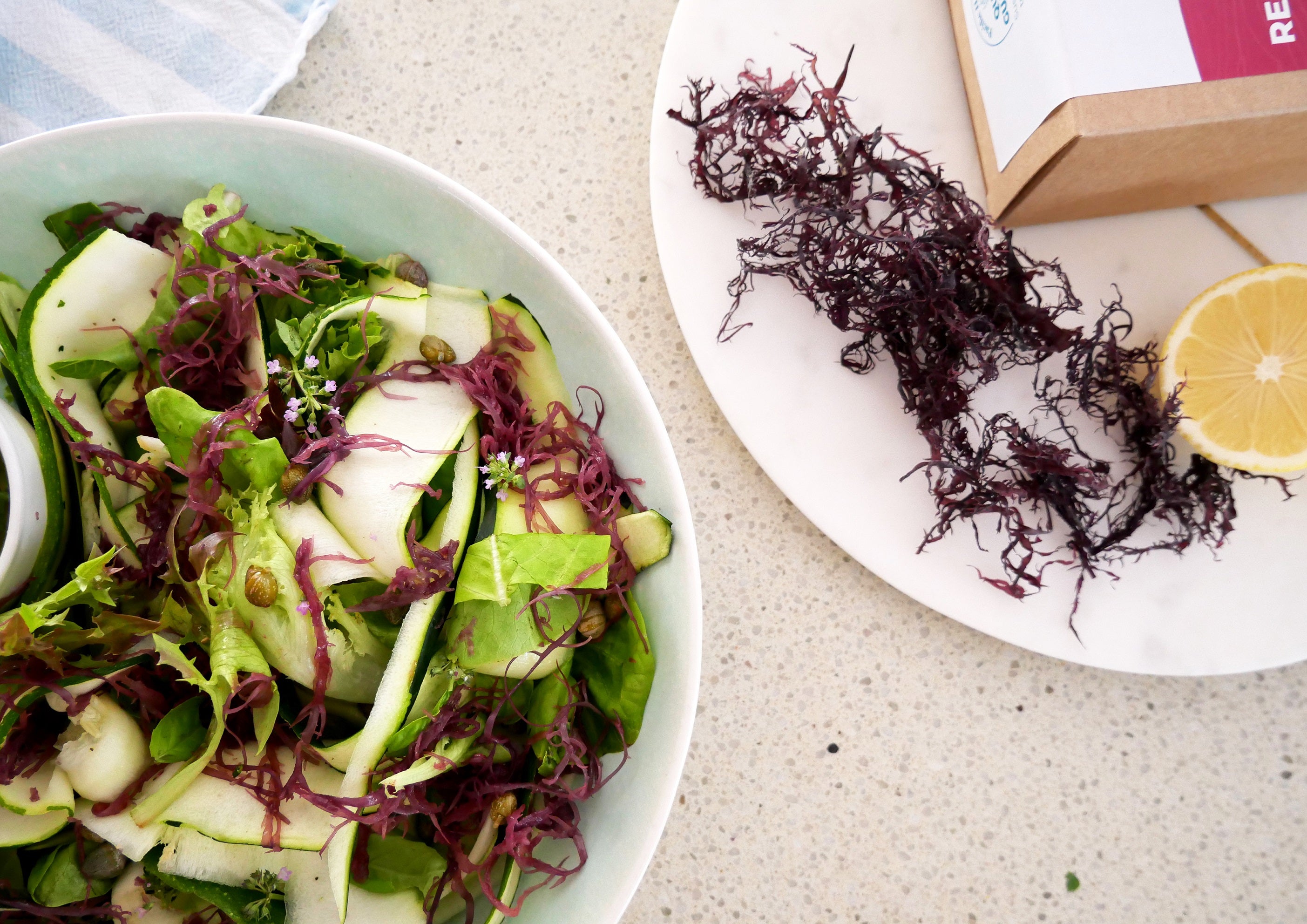Discover 4 ways to use seaweed to help supercharge your metabolism. Seaweeds offer nature's richest source of iodine, essential to support thyroid function and supercharge metabolism.
Metabolism is the chemical reaction in our body’s cells that changes food into energy. So what’s the link between seaweed and metabolism?
Normally, when we think about metabolism, we think of weight loss, and the idea that a ‘fast’ metabolism means we burn food as quickly as we consume it. In fact, what your metabolism really is, is all the chemical processes in your body that keep you alive: converting food into energy, repairing cells, breathing, and keeping your organs functioning!
Unfortunately, there is no silver bullet to health – achieving optimal metabolic activity should come from a combination of good nutrition with a whole food base, regular exercise, adequate stress management and getting an excellent night’s sleep. But, every metabolic pathway in our body depends on the micronutrients, vitamins, and minerals which we get from our food to help them operate efficiently.
Seaweeds are rich in vitamins, minerals, essential trace elements, polyunsaturated fatty acids, bioactive metabolites, proteins, polysaccharides and dietary fibres. These are crucial to supporting metabolic function, thyroid health and gut health. Incorporating a little seaweed into our diets is critical to accessing the micronutrients we need for optimal health.
4 quick ways to add seaweed to boost metabolic function.
Eating a variety of seaweeds from each colour group allows us to receive all the incredible benefits seaweed has to offer. Here are some tips and ideas to easily supercharge your metabolism with seaweed.
Replacing your regular salt with Pacific Harvest’s seaweed salt or kelp salt is the easiest way to incorporate seaweed into your diet. Our seaweed salt is a blend of organic sea salt, Atlantic Dulse, and Wakame flakes. Just a pinch can help you reach your Iodine RDI or can act to decrease your overall sodium intake while allowing you to enjoy the salty flavour.
- A dash of seaweed flakes in every meal as a garnish or seasoning
Seaweeds have a fantastic umami flavour that elevates any dish. Pacific Harvest’s kelp seasonings and seaweed sesame seasonings make it easy to top up your meals with chilli, garlic, and citrus flavours. Add to avocado toast, salads, meatballs, meat, fish, and tofu a burst of flavour and nutrients. Try our Power of Three flakes, which blend all three seaweed colours and offer an umami boost to any meal.
- Add seaweed to your morning smoothie
If you are a smoothie lover, adding seaweed is an easy way to boost your nutrient intake! Adding dulse, Irish Moss gel, kelp powder, or sea lettuce into your smoothie will bring all the benefits of seaweed without compromising taste.
- Snack on raw Nori
Nori offers plentiful iodine and is a great plant-based source of vitamin B12. The commonly found processed seaweed sheets have a relatively low mineral and nutritional content, but Pacific Harvest’s raw Nori snack packs preserve Nori’s nutritional integrity. You can enjoy it straight from the bag or sprinkle it over your food as a flavourful mineral-enhancing garnish!
Iodine, the thyroid & metabolism – what’s the seaweed link?
Iodine is a trace mineral that is critical to thyroid function. The body does not produce iodine, so our daily intake can be found through our diet or supplementation. In Australia and New Zealand, Iodine is deficient in our soils, meaning many of us struggle to get sufficient iodine if we only eat land plants.
Seaweeds soak up Iodine, one of the seawater's most abundant micronutrients. Even a pinch of suitable seaweed will help you to reach your recommended daily intake (RDI) of iodine!
Note: Brown seaweeds such as Kelp, Kombu, Sea Spaghetti, and Wakame have an exceptionally high concentration of iodine. If you are concerned about too much iodine, consider red or green seaweed which generally has lower iodine levels.
How can seaweed help gut health?
Our gut microbiome comprises trillions of diverse microbes that can be loosely categorised as beneficial or non-beneficial. A healthy balance of good gut bacteria has been shown to support immunity, brain function, energy, digestion, weight, and overall well-being. An imbalance of gut bacteria has the opposite effect on our health. Research shows that a lack of beneficial bacteria increases inflammation in the body, which is associated with a slower metabolic rate and weight gain.
Fibre makes up 30-60% of seaweed’s dry weight, which is high for vegetables. Certain fibre types have strong prebiotic abilities, helping your good gut bacteria flourish. This promotes bacterial diversity in the gut microbiome and increases good bacteria. Seaweed is rich in bioactive compounds, especially polyphenols- compounds naturally found in plant foods that act as antioxidants and reduce inflammation. Seaweed polyphenols regulate metabolic function by activating fatty tissue to enhance energy consumption. Additionally, brown seaweeds contain complex polysaccharides called fucoidans, which have been found to moderate glucose metabolism by slowing down glucose absorption into the bloodstream.







